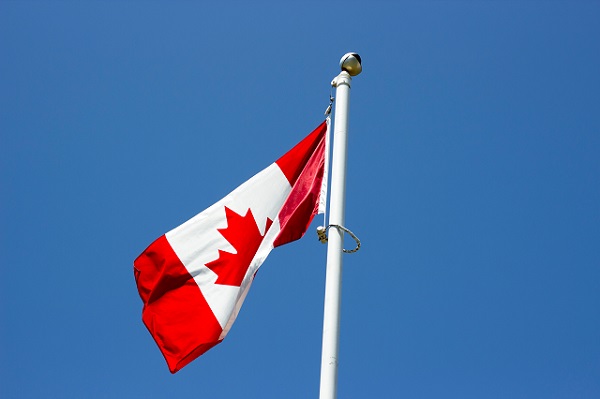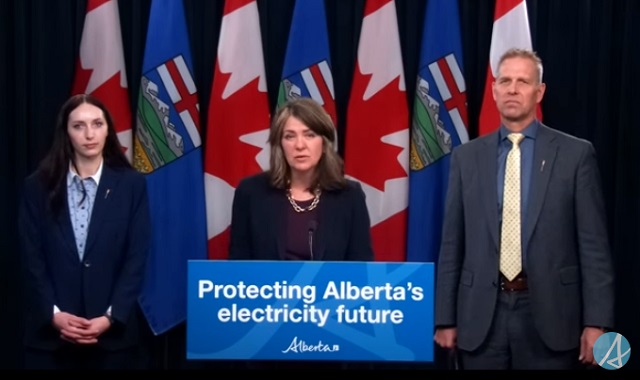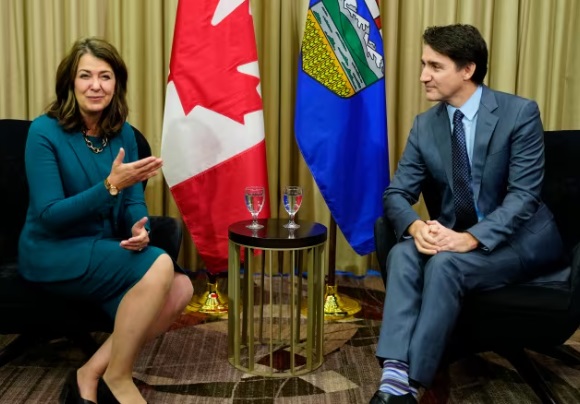Business
Nova Chemicals releases “Syndigo” line of lower-emission, recycled products

Flexible packaging, heavy duty sacks (salt, mulch bags) and blow molded bottles for home and personal care
News release from NOVA Chemicals
NOVA Chemicals Launches New Circular Solutions Business to Meet Growing Demand for Recycled Plastics
CALGARY — NOVA Chemicals Corporation (“NOVA Chemicals”) today announced the establishment of NOVA Circular Solutions, a new line of business focusing on lower-emission, recycled solutions that will help reshape a better, more sustainable world. NOVA Circular Solutions will be home to the SYNDIGOTM brand, the company’s newest portfolio of recycled polyethylene (rPE).
NOVA Circular Solutions is led by a team of experts in plastics development, recycling technology, additive science, packaging design, and regulatory compliance. It is headed by Alan Schrob, recycling director, who has nearly 30 years of experience in plastics, manufacturing, health, safety, and the environment.
“Plastic products play a critical role in our daily lives, and industry and consumers are placing higher value on products that contribute to the circular economy. They want products that can be recycled, reused, and reimagined,” said John Thayer, NOVA Chemicals senior vice president of sales and marketing. “Today’s announcement underscores NOVA’s commitment to be a leader in sustainable polyethylene production. We are investing time, resources, and world-class technical knowledge into this new line of business and the SYNDIGO brand.”
SYNDIGO rPE is designed to support recycled content and decarbonization goals of converters and brands while setting new industry standards for driving the transition towards a circular economy for plastics. There is a growing demand for recycled products and the SYNDIGO resins are poised to meet those needs in North America.
Commercially available products under the SYNDIGO brand include:
- EX-PCR-WR3 resin, mechanically recycled, sourced from polyethylene (PE) agricultural film, and ideal for e-commerce mailers, can liners, carry-out bags, protective packaging, and shrink.
- EX-PCR-NC4 resin, mechanically recycled, sourced from back-of-store distribution center PE stretch film and front-of-store consumer drop off, and ideal for heavy-duty sacks, e-commerce mailers, stretch wrap, collation shrink, protective packaging, and industrial films.
- EX-PCR-HD5 resin, mechanically recycled, sourced from HDPE milk jugs, and ideal for flexible packaging, heavy-duty sacks and small-part blow molding.
“Converters and brand owners are incorporating more recycled materials into their packaging and products to meet their sustainability goals and the demands of consumers. These important steps support our customers and drive towards a plastic circular economy, helping to protect the planet for future generations,” said Greg DeKunder, NOVA Chemicals vice president of polyethylene marketing & circular polymers. “At NOVA Chemicals, we are excited to leverage our technical knowledge, unmatched customer experience, and relationships throughout the value chain to drive recycled content adoption and demonstrate that plastics circularity is truly achievable.”
For more information on SYNDIGO, click here.
About NOVA Chemicals Corporation
NOVA Chemicals aspires to be the leading sustainable polyethylene producer in North America. Our driving purpose is to reshape plastics for a better, more sustainable world by delivering innovative solutions that advance a circular economy. Through these efforts, we strive to make everyday life healthier and safer while acting as a catalyst for a low-carbon, zero-plastic-waste future. NOVA Chemicals sets itself apart by offering superior product quality, proprietary high-performance resins, recycled and recyclable polyethylene, value chain collaboration, and exceptional customer experience. These benefits enable customers to use our resins to create flexible and rigid products that serve a variety of end-use applications. Our employees work to ensure health, safety, security, and environmental stewardship through our commitment to Sustainability and Responsible Care®.
NOVA Chemicals, headquartered in Calgary, Alberta, Canada, has nearly 2,500 employees worldwide and is wholly owned by Mubadala Investment Company of the Emirate of Abu Dhabi, United Arab Emirates. Learn more at www.novachem.com or follow us on LinkedIn.
Business
Maxime Bernier warns Canadians of Trudeau’s plan to implement WEF global tax regime

From LifeSiteNews
If ‘the idea of a global corporate tax becomes normalized, we may eventually see other agreements to impose other taxes, on carbon, airfare, or who knows what.’
People’s Party of Canada leader Maxime Bernier has warned that the Liberal government’s push for World Economic Forum (WEF) “Global Tax” scheme should concern Canadians.
According to Canada’s 2024 Budget, Prime Minister Justin Trudeau is working to pass the WEF’s Global Minimum Tax Act which will mandate that multinational companies pay a minimum tax rate of 15 percent.
“Canadians should be very concerned, for several reasons,” People’s Party leader Maxime Bernier told LifeSiteNews, in response to the proposal.
“First, the WEF is a globalist institution that actively campaigns for the establishment of a world government and for the adoption of socialist, authoritarian, and reactionary anti-growth policies across the world,” he explained. “Any proposal they make is very likely not in the interest of Canadians.”
“Second, this minimum tax on multinationals is a way to insidiously build support for a global harmonized tax regime that will lower tax competition between countries, and therefore ensure that taxes can stay higher everywhere,” he continued.
“Canada reaffirms its commitment to Pillar One and will continue to work diligently to finalize a multilateral treaty and bring the new system into effect as soon as a critical mass of countries is willing,” the budget stated.
“However, in view of consecutive delays internationally in implementing the multilateral treaty, Canada cannot continue to wait before taking action,” it continued.
The Trudeau government also announced it would be implementing “Pillar Two,” which aims to establish a global minimum corporate tax rate.
“Pillar Two of the plan is a global minimum tax regime to ensure that large multinational corporations are subject to a minimum effective tax rate of 15 per cent on their profits wherever they do business,” the Liberals explained.
“The federal government is moving ahead with legislation to implement the regime in Canada, following consultations last summer on draft legislative proposals for the new Global Minimum Tax Act,” it continued.
According to the budget, Trudeau promised to introduce the new legislation in Parliament soon.
The global tax was first proposed by Secretary-General of Amnesty International at the WEF meeting in Davos this January.
“Let’s start taxing carbon…[but] not just carbon tax,” the head of Amnesty International, Agnes Callamard, said during a panel discussion.
According to the WEF, the tax, proposed by the Organization for Economic Co-operation and Development (OECD), “imposes a minimum effective rate of 15% on corporate profits.”
Following the meeting, 140 countries, including Canada, pledged to impose the tax.
While a tax on large corporations does not necessarily sound unethical, implementing a global tax appears to be just the first step in the WEF’s globalization plan by undermining the sovereignty of nations.
While Bernier explained that multinationals should pay taxes, he argued it is the role of each country to determine what those taxes are.
“The logic of pressuring countries with low taxes to raise them is that it lessens fiscal competition and makes it then less costly and easier for countries with higher taxes to keep them high,” he said.
Bernier pointed out that competition is good since it “forces everyone to get better and more efficient.”
“In the end, we all end up paying for taxes, even those paid by multinationals, as it causes them to raise prices and transfer the cost of taxes to consumers,” he warned.
Bernier further explained that the new tax could be a first step “toward the implementation of global taxes by the United Nations or some of its agencies, with the cooperation of globalist governments like Trudeau’s willing to cede our sovereignty to these international organizations.”
“Just like ‘temporary taxes’ (like the income tax adopted during WWI) tend to become permanent, ‘minimum taxes’ tend to be raised,” he warned. “And if the idea of a global corporate tax becomes normalized, we may eventually see other agreements to impose other taxes, on carbon, airfare, or who knows what.”
Trudeau’s involvement in the WEF’s plan should not be surprising considering his current environmental goals – which are in lockstep with the United Nations’ 2030 Agenda for Sustainable Development – which include the phasing out coal-fired power plants, reducing fertilizer usage, and curbing natural gas use over the coming decades.
The reduction and eventual elimination of so-called “fossil fuels” and a transition to unreliable “green” energy has also been pushed by the World Economic Forum – the aforementioned group famous for its socialist “Great Reset” agenda – in which Trudeau and some of his cabinet are involved.
Business
Higher Capital Gains Taxes cap off a loser federal budget

From Frontier Centre for Public Policy
By Lee Harding
Even former Liberal Finance Minister Bill Morneau told the Financial Post the capital gains tax increase would be “very troubling for many investors.” He added, “I don’t think there was enough effort in this budget to reduce spending, to create that appropriate direction for the economy.”
New taxes on capital gains mean more capital pains for Canadians as they endure another tax-grabbing, heavy-spending federal deficit budget.
Going forward, the inclusion rate increases to 66 per cent, up from 50 per cent, on capital gains above $250,000 for people and on all capital gains for corporations and trusts. The change will affect 307,000 businesses and see Ottawa, according to probably optimistic projections, rake in an additional $19.4 billion over four years.
A wide chorus of voices have justifiably condemned this move. If an asset is sold for more than it was bought for, the government will claim two-thirds of the value because half is no longer enough. It’s pure government greed.
If you were an investor or a young tech entrepreneur looking for somewhere to set up shop, would you choose Canada? And if you’re already that investor, how hard would you work to appreciate your assets when the government seizes much of the improvement?
Even before this budget, the OECD predicted Canada would have the lowest growth rates in per-person GDP up to 2060 of all its member countries.
In a speech in Halifax on March 26, Bank of Canada senior deputy governor Carolyn Rogers put the productivity problem this way: “You’ve seen those signs that say, ‘In emergency, break glass.’ Well, it’s time to break the glass.”
What can Canadians bash now? Their heads against a wall?
Even former Liberal Finance Minister Bill Morneau told the Financial Post the capital gains tax increase would be “very troubling for many investors.” He added, “I don’t think there was enough effort in this budget to reduce spending, to create that appropriate direction for the economy.”
No kidding. Not since the first Prime Minister Trudeau (Pierre) have Canadians been able to count so reliably on deficit spending, higher expenditures, and more taxes.
Long ago, it seems now, when Justin Trudeau was not yet prime minister, he campaigned on “a modest short-term deficit” of less than $10 billion for each of the first three years and a balanced budget by the 2019-2020 fiscal year.
His rationale was that low interest rates made it a rare opportunity to borrow and build infrastructure, all to encourage economic growth. Of course, the budget never balanced itself and Canada has lost $225 billion in foreign investment since 2016.
The deficits continue though the excuse of low interest rates is long gone. Despite higher carbon and capital gains taxes, this year’s deficit will match last year’s: $40 billion. Infrastructure seems less in view than an ever-expanding nanny state of taxpayer-funded dental care, child care, and pharmacare.
Of course, the Trudeau deficits were not as modest as advertised, and all-time federal debt has doubled to $1.2 trillion in less than a decade. Debt interest payments this coming fiscal year will be $54.1 billion, matching GST revenue and exceeding the $52 billion of transfers to the provinces for health care.
In 1970, columnist Lubor Zink quoted Pierre Trudeau as saying, “One has to be in the wheelhouse to see what shifts are taking place . . . The observer . . . on the deck . . . sees the horizon much in the same direction and doesn’t realize it but perhaps he will find himself disembarking at a different island than the one he thought he was sailing for.”
Like father, like son, Justin Trudeau has captained Canada to a deceptive and unwelcome destination. What started as Fantasy Island is becoming Davy Jones’ Locker.
Lee Harding is a Research Fellow at the Frontier Centre for Public Policy
-

 COVID-1914 hours ago
COVID-1914 hours agoWHO Official Admits the Truth About Passports
-

 COVID-192 days ago
COVID-192 days agoJapanese study finds ‘significant increases’ in cancer deaths after third mRNA COVID doses
-

 Alberta10 hours ago
Alberta10 hours agoProvince to stop municipalities overcharging on utility bills
-

 Brownstone Institute2 days ago
Brownstone Institute2 days agoPfizer Lied to Us Again
-

 Brownstone Institute2 days ago
Brownstone Institute2 days agoDid Lockdowns Set a Global Revolt in Motion?
-

 Brownstone Institute2 days ago
Brownstone Institute2 days agoIs the Overton Window Real, Imagined, or Constructed?
-

 Frontier Centre for Public Policy1 day ago
Frontier Centre for Public Policy1 day agoThe tale of two teachers
-

 Alberta20 hours ago
Alberta20 hours agoAlberta moves to protect Edmonton park from Trudeau government’s ‘diversity’ plan








